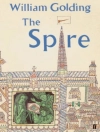The Complete Works of Fyodor Dostoyevsky presents an unparalleled collection of the author’s masterpieces, capturing the tumult of human existence through complex characters and philosophical inquiry. This anthology includes seminal works such as ‘Crime and Punishment, ‘ ‘The Brothers Karamazov, ‘ and ‘The Idiot, ‘ revealing Dostoyevsky’s unique narrative style that intertwines psychological depth with existential themes. The prose is marked by a profound exploration of morality, religion, and the human condition, reflective of the socio-political climate of 19th-century Russia, where he grappled with questions of faith amid an emerging modernity. Fyodor Dostoyevsky, a prolific Russian novelist, was shaped by his own harrowing life experiences—his near-execution, Siberian exile, and struggles with poverty and mental health. These trials furnished him with an acute awareness of human suffering and theological dilemmas, which permeate his narrative voice. Influenced by writers such as Goethe and Nietzsche, he sought not just to entertain but to provoke deep philosophical contemplation about the nature of existence and free will. This anthology is essential for any serious reader of literature. Dostoyevsky’s rich tapestry of existential dilemmas and moral questions invites reflection on our own lives, making ‘The Complete Works’ indispensable for those who wish to delve into the depths of the human psyche.
Over de auteur
Fyodor Mikhailovich Dostoyevsky (1821–1881) stands among the most profound and influential novelists of Russian literature. His literary career is marked by a prolific output that encompasses a series of novels exploring human psychology in the troubled political, social, and spiritual atmospheres of 19th-century Russia. Dostoyevsky’s works often delve into themes of existential despair, morality, free will, and the tumult of the human soul. His masterpiece, ‘Crime and Punishment’ (1866), presents a penetrating analysis of moral dilemmas through the narrative of Raskolnikov, a man who grapples with the justification of murder for a perceived greater good. Other notable works of commanding depth include ‘The Idiot’ (1869), offering a poignant look at innocence and idealism, and ‘The Brothers Karamazov’ (1880), a complex tale of patricide and spiritual struggle, often regarded as his magnum opus. ‘The Complete Works of Fyodor Dostoyevsky’ offers readers a comprehensive journey through his literary evolution, showcasing his gift for introspection and narrative intensity. Dostoyevsky’s penetrating analysis of the human condition, combined with his innovative narrative techniques and philosophical depth, cements his reputation as a precursor of existentialist thought, profoundly impacting subsequent generations of writers and thinkers worldwide.












